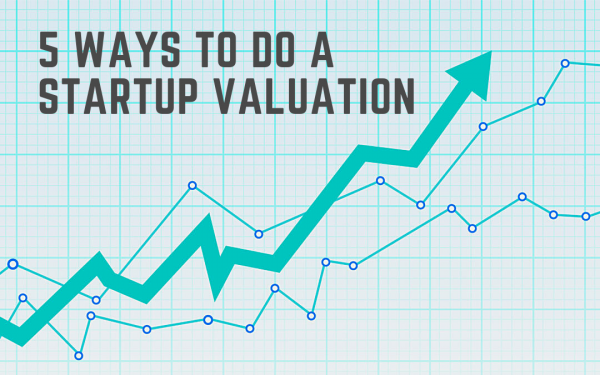5 Ways to do a Startup Valuation

Business valuation is sometimes described as more of an art than a science. If this is the case, evaluating a beginning firm falls directly under the purview of the artist. Nonetheless, entrepreneurs must assign a monetary value to their businesses in order to raise funds, and investors must assign a monetary value to their assets in order to generate liquidity.
Hence, here are 5 methods you can use to value your startup:
The Discounted Cash Flow:
The Discounted Cash Flow (DCF) Method focuses on forecasting future cash flow movements for a startup. The “discount rate,” or rate of return on investment, is then estimated and used to establish the value of the projected cash flow. Because startups are still in their early stages and investing in them carries a high risk, a large discount rate is usually imposed.
The Market Multiple Approach:
It is one of the most often used strategies for valuing a startup. The market multiple approach works in the same way as other multiples do. Recent market acquisitions of a comparable nature to the company in question are considered, and a base multiple is calculated using the value of the recent acquisitions.
The Cost-to-Duplicate Approach:
The Cost-to-Duplicate Approach entails factoring in all costs and expenses related to the startup and product development, including the purchase of physical assets. All of these costs are considered in determining the startup’s fair market value based on all of the costs. The cost-to-duplicate strategy has the following disadvantages:
- By running projection statements of future sales and growth, the company’s future potential is not taken into account.
- Not taking into account its intangible assets in addition to its tangible assets.
Berkus Approach:
The Berkus Approach, developed by American venture capitalist and angel investor Dave Berkus, focuses on determining the worth of a celebrity.
A thorough analysis is carried out to determine how much value the five main success criteria provide to the enterprise’s total worth in quantitative terms. The startup is valued based on these figures. The Berkus Approach may sometimes also be referred to as “the Stage Development Method or the Development Stage Valuation Approach.”
The Future Valuation Multiple Approach:
The Future Valuation Multiple Approach focuses entirely on calculating the return on investment that investors might expect in the near future, say in the next five to ten years. For this aim, several estimates are made, including five-year sales projections, growth projections, cost and expenditure projections, and so on, and the startup is valued based on these future projections.






